2 Comments
The last couple of months have seen a flurry of reptile surveys on proposed development sites across Norfolk, Suffolk and Essex. These surveys have included the use of artificial refuges (a mixture of roofing felt, roofing sheet and carpet tiles) deployed around potential development sites. These are then visited on repeat occasions and inspected for reptiles basking on the top of the refugia or sheltering underneath them. The key to these surveys is to be slow and stealthy in approaching them, as reptiles can vanish in a flash at the slightest movement or swish of clothing. Ironically, I have seen more reptiles recently on proposed sites where I have been undertaking habitat survey, and recorded reptiles as incidental records. These have included a couple of glimpses of common lizard (perhaps quickest to scamper away) and a few sightings of grass snakes, which although relatively common are my favourite of our common reptile species. 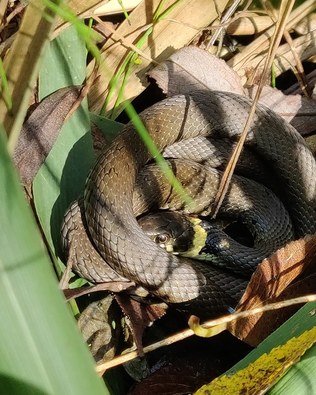 Grass snake, basking on tall herbaceous vegetation Grass snake, basking on tall herbaceous vegetation Reptile surveys are often required on potential development site as all reptiles in the UK benefit from legal protection. For the four common species (grass snake, adder, common lizard and slow worm) it is an offence to kill reptiles under the Wildlife and Countryside Act. Where a site supports a population, a reptile mitigation strategy can be developed to ensure that reasonable measures are put in place to prevent harm to reptiles and reduce the risk of an offence being committed. Such mitigation can include the implementation or reasonable avoidance measures (or RAMs) or potentially the translocation of reptiles to a receptor site. If you would like to know more about when surveys are required, feel free to get in touch via our Contacts page, or email Jon on [email protected] 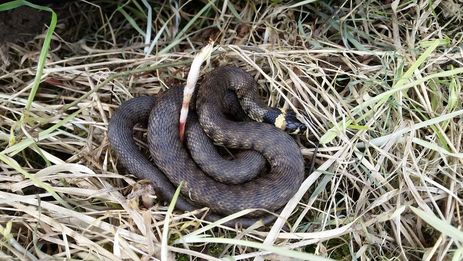 Grass snake recorded during reptile survey in Norfolk, May 2018 Grass snake recorded during reptile survey in Norfolk, May 2018 It is nearly the middle of May already and like all good ecologists, much of my time is spent out 'in the field' undertaking surveys of sites for projects. This week has seen a particularly varied selection of surveys including:
Now we are into the first week of March, the signs of spring are everywhere.
For an ecological consultant, one of the important aspects of spring is the start of a new survey season, with the traditional surveys for great crested newt taking place between mid-March and mid-June. Here at Huckle Ecology, we are ready to start these surveys with relish, and are also looking forward to undertaking a few Environmental DNA surveys of ponds. These surveys, involve taking water samples of ponds, with the water being tested for the presence of DNA of GCN - in many cases, a positive or negative result can lead to cost effective assessment of potential impacts. If you need great crested newt surveys in 2017, it is still not too late to get them commissioned. Please get in touch via our contact page or email on [email protected]. Believe it or not, but it is nearly the end of January!
As any good ecological consultant will be aware, the survey season for great crested newts will soon be upon us. As a protected species, it is an offence to capture (take) or disturb these fantastic little amphibians, which means that surveys for GCN need to be undertaken by an ecologist with a licence to undertake trapping and other activities that would otherwise be an offence. As days lengthen, newts and other amphibians will be heading towards ponds to breed - the courtship display is one of the marvels of British Wildlife and a story for another blog. Once in ponds, that is the optimal time for undertaking surveys, and the reason why traditional newt survey methods advocate sampling for amphibians between mid March and mid-June (with most surveys between mid-April and mid May). In recent years the use of Environmental DNA (EDNA) technology has provided another approach to surveys, with surveys being valid from mid-April onwards. The key message, is that if you have a site where newts surveys are likely to be required, you need to get them into your programme now to ensure that you do not miss the boat! If you leave it until June, you will have left it to late , and there would be a real danger of a delay to programme and a serious entry in a project's risk register! Get in touch via my contacts page for an informal chat about protected species or to discuss your survey requirements. |
Jon HuckleThis is intended to host my articles on ecology, news about what I am up to, and general musings or ramblings about things that concern me.... Archives
February 2023
Categories
All
|
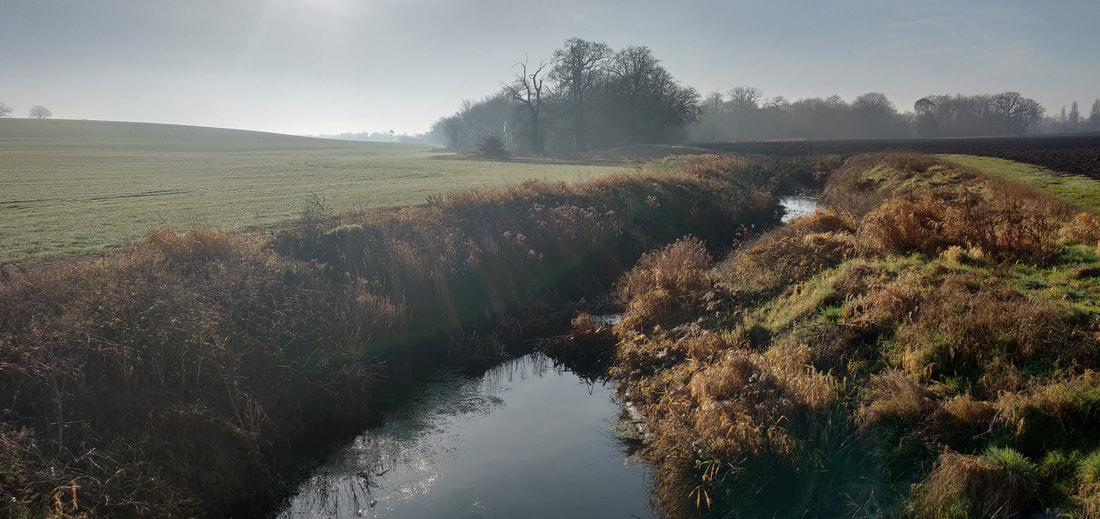
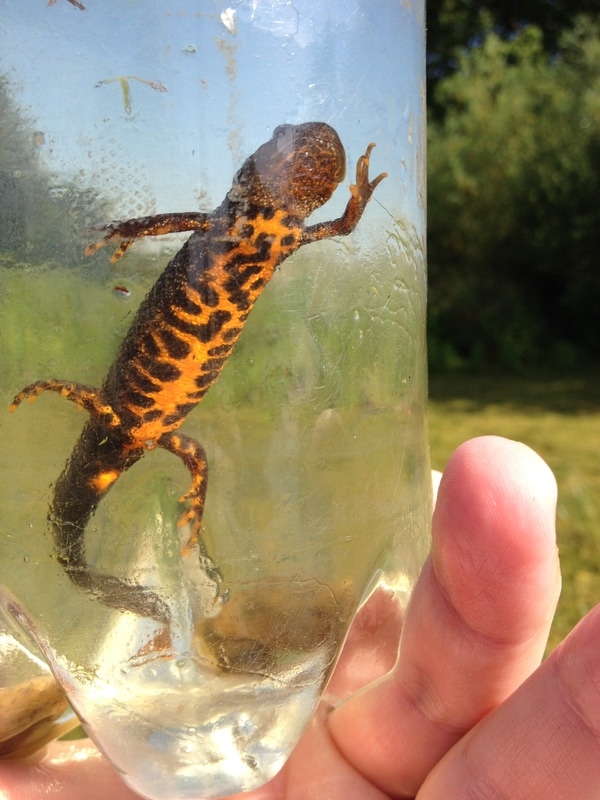
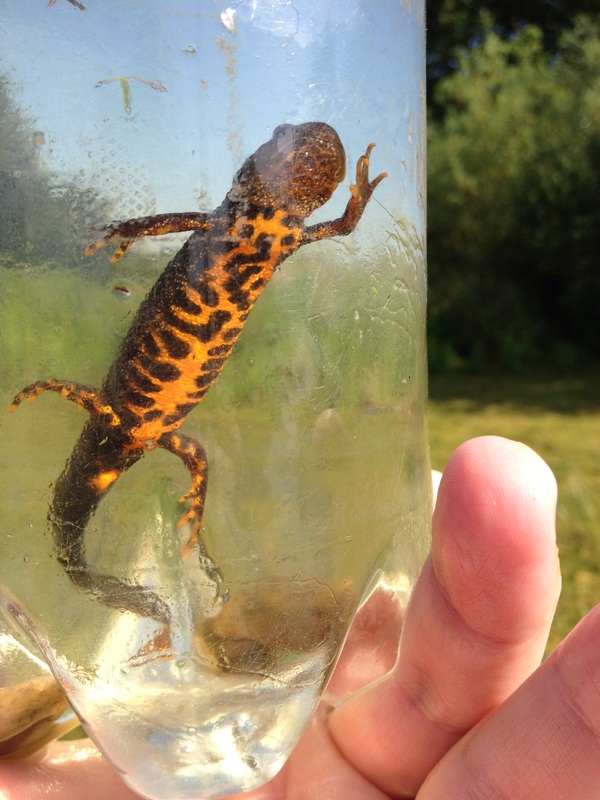
 RSS Feed
RSS Feed
